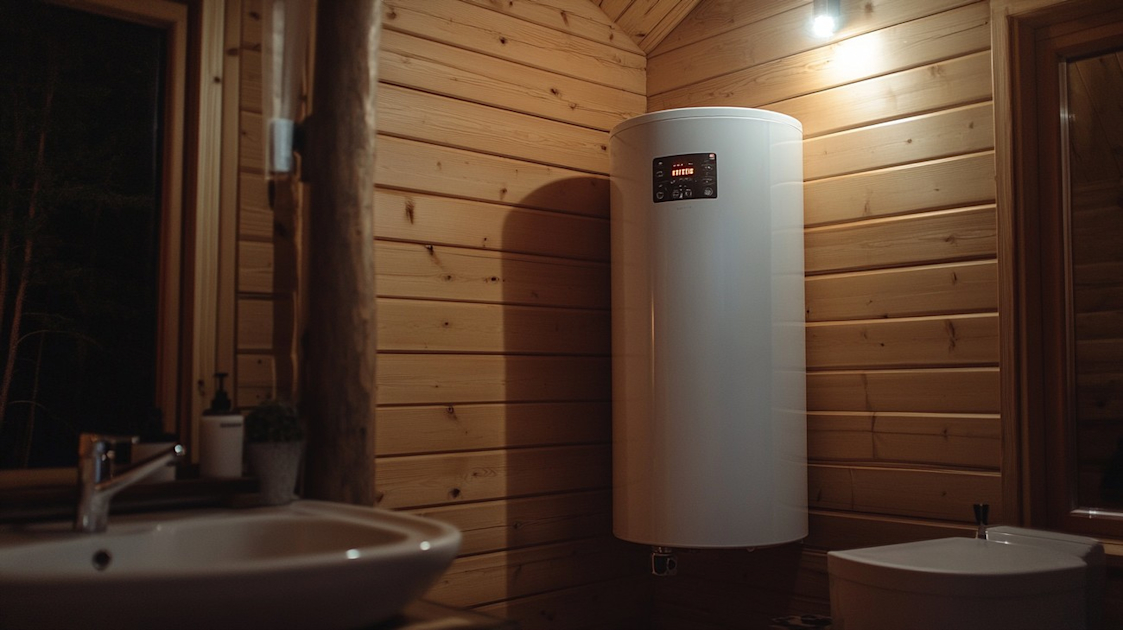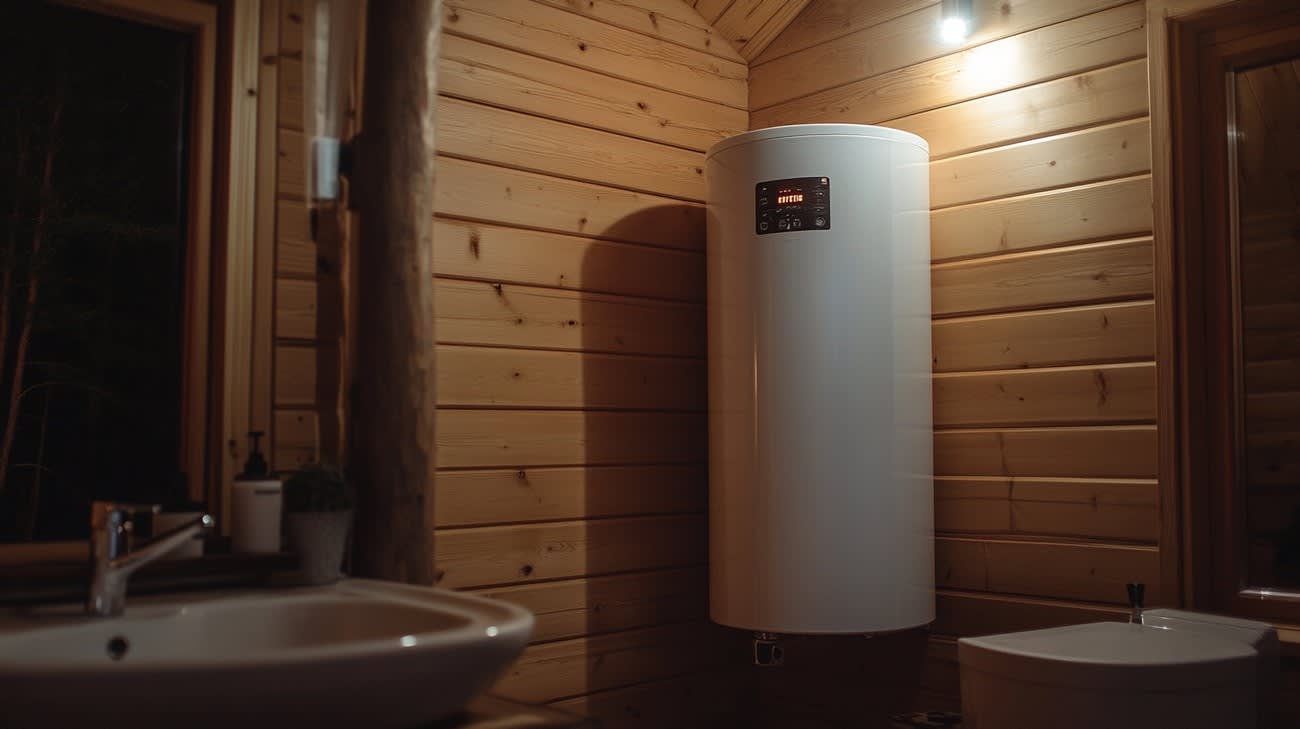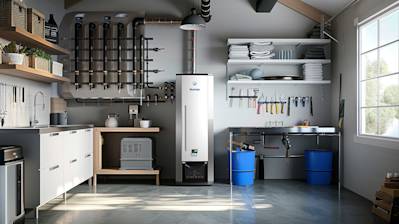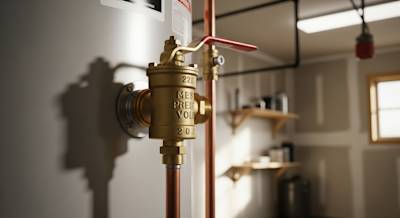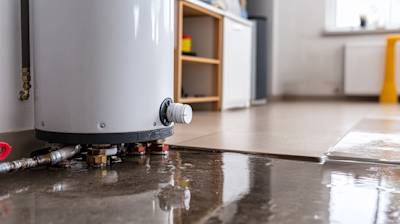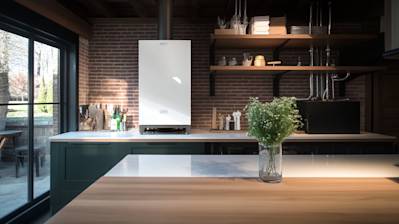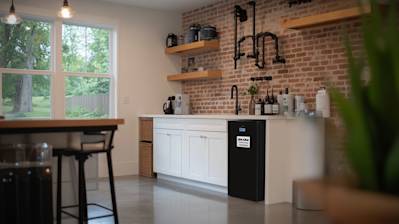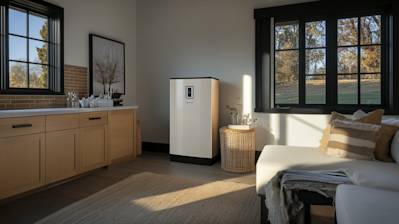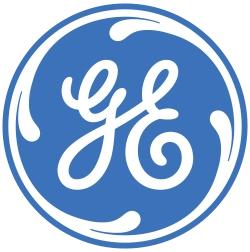Water heaters are indispensable resources in most households, but did you know that not all water heaters need to take up a chunk of your floor space? A small water heater can be just as effective, efficient, and powerful as its larger counterparts. Small water heaters are ideal for different scenarios, such as when space is limited or for specific isolated tasks. This comprehensive guide will delve deep into the world of small water heaters to provide you with everything you need to know.
What is a Small Water Heater?
A small water heater is a compact device designed to heat water. Different from traditional larger water heaters, these units are smaller in size, which makes them perfect for locations where space is at a premium.
Following are some of the places where small water heaters can be beneficial:
- Bachelor pads or studios
- Small kitchens in guest houses, in-law suites, or basements
- For isolated uses, like a specialized bathroom or workstation
When labeled as 'small', water heaters generally have a capacity of 2.5 to 4 gallons. Despite their size, these units provide hot water at the point-of-use with minimal heating time, which results in less water and energy wastage.
Different Types of Small Water Heaters
There are multiple types of small water heaters based on factors like energy sources and design. Below are the most popular ones:
Small Tankless Water Heaters
Tankless water heaters, also known as on-demand water heaters, heat water directly without the use of a storage tank. It eradicates the need for reserved water, resulting in less standby energy losses.
Electric Small Water Heaters
Electric small water heaters use electricity as a primary power source. Often easier and less expensive to install, electric water heaters can be an ideal option for indoor spaces.
Gas Small Water Heaters
Gas small water heaters can be powered either by natural gas or propane gas. These are usually more energy-efficient and heat water faster than electric versions.
Solar Small Water Heaters
Solar-powered small water heaters are eco-friendly alternatives that use solar panels for energy. Though initial costs are high, savings over the long-term make them a cost-effective option.
Factors to Consider while Choosing a Small Water Heater
Choosing the right water heater is important to ensure it meets your specific needs and provides maximum efficiency. Here are some factors to keep in mind:
- Energy Source: Choose a type that fits with your available energy sources. It could be electric, gas, or solar.
- Capacity: Consider the intended use and find a model that will cater to your hot water needs without running short.
- Energy Efficiency: Go for models with a high energy factor (EF) for more energy savings.
- Installation Location: Ensure the unit you choose fits perfectly in the space where you plan to install it.
- Warranty: Always pick models with a reliable warranty for peace of mind.
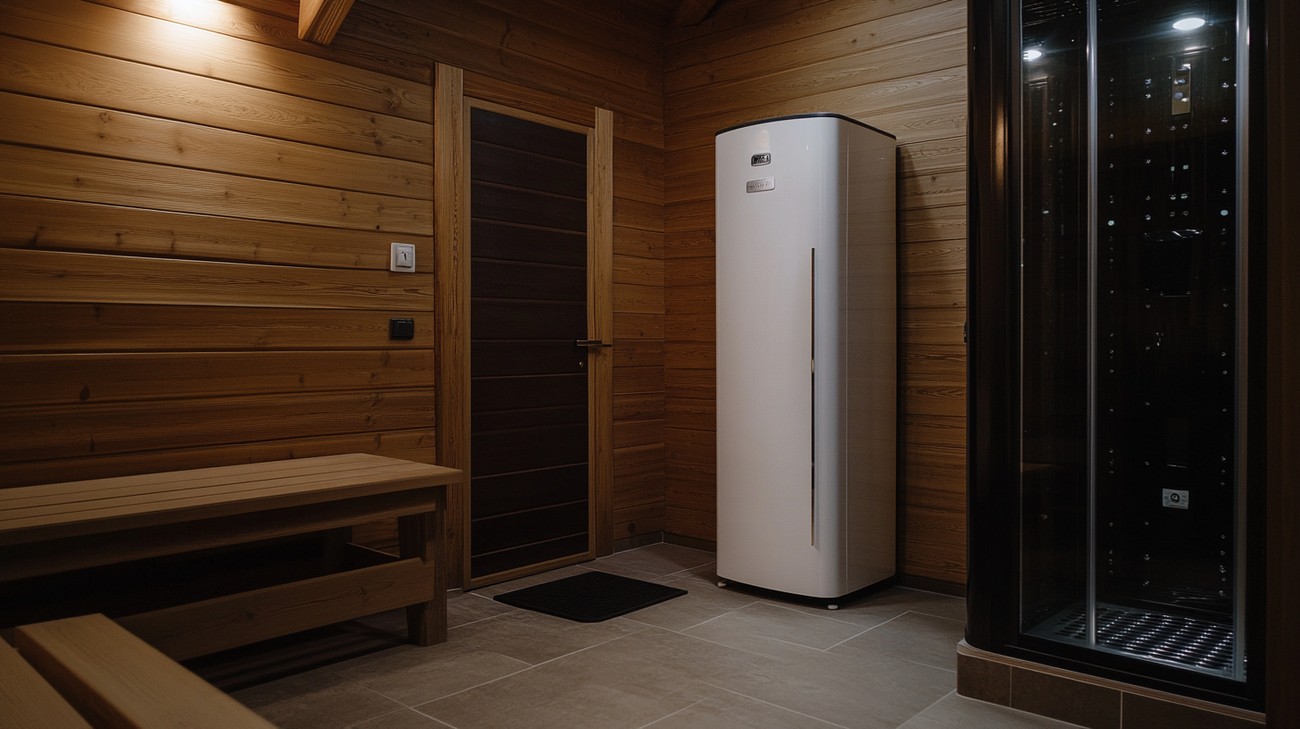
Frequently Asked Questions about Small Water Heater
Could a small water heater be adequate for my whole house?
Typically, small water heaters provide the right amount of hot water for small spaces or single applications. However, if your hot water demands are minimal, it may be suitable for your entire small house or apartment. It is recommended to consult with a professional when choosing the size of a water heater.
What's the main difference between a tank and tankless small water heater?
In a small water heater with a tank, water is stored and heated in a tank until it's needed. The tank constantly maintains the heated water. Tankless small water heaters, on the other hand, don't store water. They rapidly heat water on demand when you turn on the hot tap.
What is the average duration a small water heater last?
Small water heaters have a lifespan roughly of 10 to 15 years. Like any appliance, the lifespan largely depends on the quality of the heater, installation, maintenance, and usage.
Can I install a small water heater by myself?
While some people might be tempted to install their small water heater themselves, it's recommended to get it professionally installed. Installation can require adjustments to plumbing and electrical systems that most homeowners are not properly equipped to handle.
How to maintain a small water heater?
Maintaining your small water heater is quite straightforward, primarily involving flushing the heater out periodically to prevent build-up of sediment. Other tasks include checking the pressure relief valve and inspecting the anode rod- these tasks might require professional attention.
What are the benefits of a small electric water heater compared to a gas water heater?
Small electric water heaters are generally cheaper than gas water heaters, both in terms of cost and installation. Furthermore, electric water heaters typically require less space and maintenance, making them an ideal choice for people needing the hot water supply for smaller spaces.
What's the average price range for small water heaters?
The price of small water heaters can vary greatly, depending on the type, brand, and model. Generally speaking, the price range could be from $100 to $700 or more, with tankless models typically being more expensive.
How energy efficient are small water heaters?
Small water heaters are generally more energy-efficient than larger ones due to less standby heat loss. Tankless models can be even more energy efficient because they heat water on demand rather than maintaining a tank full of hot water.

Pros of Small Water Heaters
Space Efficiency
Compact Size
One of the most significant advantages of small water heaters is that they're compact. This means they take up less space in your home, which especially beneficial if you live in a small apartment or a home with limited storage space.
Can Be Installed Nearly Anywhere
Due to their small size, these water heaters can be installed almost anywhere in your home, including under the sink, in a closet, or even mounted on a wall. This provides a level of flexibility unavailable with larger models.
Energy-Efficiency
Less Heat Loss
Small water heaters often come as tankless models, which heat water on demand, rather than storing hot water in a large tank. This can lead to less heat loss, making these units more energy-efficient than their larger counterparts.
Lower Power Usage
Since small water heaters heat less water at a time than larger models, they typically use less energy overall. This is not only good for the environment, but it can also translate to lower energy bills.
Lower Initial Cost
More Affordable Than Larger Models
Small water heaters typically have a lower upfront cost than larger ones. This could make them a more affordable option, especially for those on a tight budget or living in a smaller home that does not require a large amount of hot water.
Cons of Small Water Heaters
Less Hot Water
Limited Capacity
One downside to small water heaters is that they have a limited capacity. This means they may struggle to provide enough hot water for larger households or for tasks that require a lot of hot water, such as filling a large bathtub.
Less Ideal for Multiple Uses
Since small water heaters have limited capacity, they might be less suitable for homes where hot water is often needed for multiple uses at once. For example, they might struggle to provide enough hot water for taking a shower while also running the dishwasher.
Shorter Lifespan
More Frequent Replacements
While small water heaters typically cost less upfront, they generally have a shorter lifespan than larger units. This could potentially require more frequent replacements, which could end up costing more in the long run.
Potential Inefficiency
Energy Usage Can Be High for Large Demand
While small water heaters do typically use less energy overall than larger models, this can depend on how you use them. For instance, if you're frequently running out of hot water and the unit is constantly having to reheat its supply, it could end up using more energy than you might expect.
Installation Challenges
Requires Professional Installation
Despite their smaller size, installing a small water heater can still be challenging and will generally require professional installation. This could add to the overall cost and could be a drawback if you were planning on installing the unit yourself to save money.
Possible Additional Costs
In addition to installation, there might be additional costs associated with a small water heater, such as added insulation or special venting requirements, especially if it's a tankless model. These potential costs could take some of the shine off the upfront savings.

Myths and Misconceptions About Small Water Heaters
There's a lot of confusion over small water heaters, their efficiency, expected lifespan, and usage. Let's breakdown some of these myths and misconceptions to clarify how they actually work.
Myth 1: Small Water Heaters Cannot Supply Enough Hot Water
One of the most common misconceptions is that a small water heater cannot supply enough hot water for a home or business. While it is true that a small water heater has a smaller tank capacity compared to its larger counterparts, it does not necessarily mean that it cannot meet a household or business' needs.
Reality
Modern small water heaters use advanced technology to heat water more efficiently and faster. This allows them to provide adequate hot water for tasks such as bathing, washing dishes, and doing laundry. It all comes down to correctly sizing the heater to the demands of the building it's serving.
Myth 2: Small Water Heaters Are Not Energy-Efficient
Some people believe that because of their size, small water heaters have to work harder, and therefore are less energy-efficient.
Reality
Actually, small water heaters can be more energy-efficient than larger ones. They have less water to heat, which means they use less energy overall. Additionally, because of their size, they often lose less heat through their walls, preserving more of the heat they generate. Manufacturers also design small water heaters with insulated tanks to prevent unnecessary heat loss.
Myth 3: Small Water Heaters Are Only for Small Spaces or Single Individuals
Many people believe that small water heaters are only suitable for small apartments or for single individual use because of their size.
Reality
While size does play a role in how much hot water a heater can produce at a time, small water heaters are surprisingly versatile. They can serve small homes adequately and they're also ideal for places where space is at a premium, like a small condominium or a tiny home. Additionally, multiple small water heaters can be installed in larger homes, either to serve different areas independently or to work together for higher demand situations.
Myth 4: Small Water Heaters Have Short Lifespan
Some people think that because small water heaters work harder to heat the water, they tend to wear out and break down faster.
Reality
The truth is, with regular maintenance and proper care, small water heaters can last just as long as larger models. Factors such as water quality, the design of the heater, and how often it's used will have more effect on a heater's lifespan than simply its size.
Myth 5: Small Water Heaters Are Expensive to Operate
The thought behind this misconception is that because small water heaters constantly heat small amounts of water, they consume a lot of power.
Reality
Smaller heaters can indeed cycle more often, but modern units are designed to be more energy-efficient, offsetting much of this effect. Also, as small heaters have a lower initial volume of water to heat up, they can often provide hot water faster using less energy than a larger heater that has been off for a while.
All of these myths underscore the importance of understanding small water heaters and their functions. It helps to have accurate information when choosing the suitable size, type, and model for your needs. It's always useful to consult a professional or look for factual evidence before believing in such assumptions or myths.
Summary
So, now you know a bit more about the nifty world of small water heaters. Despite being rather modest in size, these devices pack a punch in terms of functionality. Whether you're living alone in a tight apartment or going for a stint of camping, a small water heater can easily meet your hot water needs. Not only are they practical, but they're also energy efficient, saving you more on your monthly bills.
Look at it this way; the small water heater is kind of like the unsung hero of modern living. We may take hot water on demand for granted, but without these machines, we'd have to revert to older, less convenient methods of heating water. All in, whether for home use, office use, or even for travel, the demand and popularity of these heaters are definitely well-deserved.
So, go ahead and consider investing in a small water heater if you haven't already. Your showers, dishes, and laundry will thank you for it. And by the way, these compact heaters are pretty user-friendly and easy to install too. So, next time you're sipping a hot cup of coffee, spare a thought for the little gadget that made that possible. A small water heater might be an small appliance, but it definitely plays a big role in our day-to-day lives.
About KYPD Plumbing
KYPD Plumbing is all about making Lexington, KY's plumbing problems disappear. Serving the beautiful Bluegrass state since 2011, we are a family-owned business dedicated to ensuring water runs smoothly in your homes and businesses. From small fixes to massive overhauls, there ain't a pipe or drain we can't tackle. You might be wondering, 'What's with the name KYPD?' Well, it stands for Keep Your Plumbing Delightful – that’s exactly what we strive to do for our clients. By prioritizing stellar service, fair pricing, and top-notch skills, we are confident we can make your plumbing woes a thing of the past. Trust us, when you say KYPD, you say 'goodbye' to your plumbing concerns.
Tags: electric, compact, tankless,

